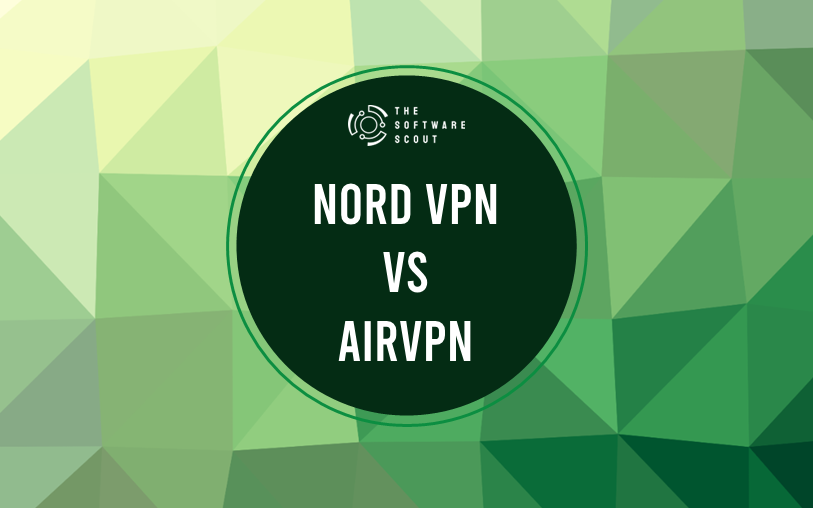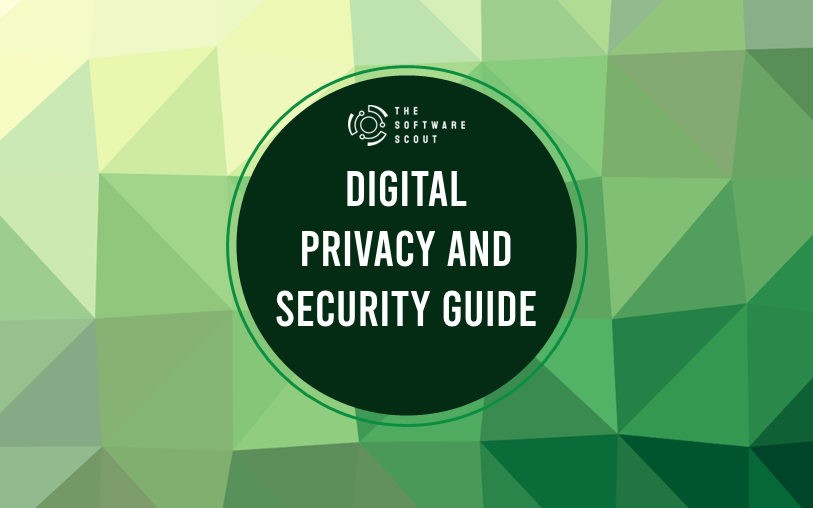When choosing a VPN, the options can feel overwhelming. Two popular choices that often come up in conversation are Nord VPN and AirVPN.
Both services offer solid privacy and security features, but they take very different approaches.
In this article, we’ll run through their differences, strengths, and weaknesses to help you decide which one suits your needs best.

A Brief Overview
Nord VPN is widely recognized for its ease of use, robust security measures, and an extensive network of servers. It appeals to a broad range of users—from those who want quick setup and streaming capabilities to those seeking strong privacy without much fuss. The service is based in Panama, a country known for its privacy-friendly laws, and has earned trust through independent audits of its no-logs policy.
AirVPN, on the other hand, caters more to advanced users who appreciate the ability to customize settings. It is designed with privacy enthusiasts in mind. Although its interface may appear a bit dated or technical for newcomers, AirVPN offers powerful features like port forwarding, making it especially popular among torrenters and those who value detailed control over their VPN connection. It’s based in Italy, and while it has a strict no-logs policy, its smaller server network means it may not be as fast or versatile for streaming purposes.
Pricing and Plans
Pricing is a key factor for many when selecting a VPN. Here’s how the two stack up:
- Nord VPN offers a range of plans:
- Monthly subscriptions tend to be on the higher side.
- Annual and multi-year plans significantly reduce the monthly cost.
- It often comes with perks like a 30-day money-back guarantee and periodic discounts through coupon codes.
- AirVPN has a more straightforward pricing structure:
- It tends to be slightly cheaper in its long-term plans.
- A free trial is available on most platforms, along with a 30-day money-back guarantee.
- AirVPN’s pricing is attractive to users who are more technically inclined and want access to advanced features without a premium price tag.
Key Takeaway: If you’re budget-conscious and comfortable with a less flashy interface, AirVPN might catch your eye. However, if you value a polished experience with occasional promotional deals, Nord VPN is worth the extra cost.
Security and Privacy
When it comes to protecting your online activities, both VPNs have solid security features, though their approaches differ slightly.
Encryption and Protocols
- Nord VPN employs military-grade AES-256 encryption and supports multiple protocols like NordLynx (a custom version of WireGuard), OpenVPN, and IKEv2. Its use of NordLynx contributes to its reputation for delivering fast and secure connections.
- AirVPN also uses AES-256-GCM encryption and supports OpenVPN and WireGuard. While its protocols are strong, its primary appeal lies in the ability to tweak and customize settings—ideal for users who enjoy configuring their connection to suit specific needs.
Jurisdiction and No-Logs Policy
- Nord VPN operates out of Panama—a jurisdiction that isn’t part of any major international surveillance alliances. Its independently audited no-logs policy gives users confidence that their online activities remain private.
- AirVPN is based in Italy and follows strict privacy guidelines under European law. Although it maintains a no-logs policy, it hasn’t undergone the same level of independent auditing as Nord VPN. Still, many privacy enthusiasts appreciate the transparency and control AirVPN offers.
Additional Security Features
- Kill Switch: Both services offer a kill switch that immediately disconnects your internet if the VPN connection drops, protecting your data from accidental exposure.
- Leak Protection: Each service provides protection against DNS, IPv6, and WebRTC leaks to keep your real IP address hidden.
Key Takeaway: In the realm of security and privacy, both VPNs are solid. Nord VPN’s independent audits and privacy-friendly jurisdiction give it a slight edge for those who want an extra layer of confidence, while AirVPN’s customization options appeal to advanced users who prefer to manage every detail of their connection.
Also read: How Does VPN Enhance Security?
Speed and Performance
Fast and reliable internet speed is crucial whether you’re streaming, gaming, or simply browsing.
Nord VPN’s Speed
Nord VPN is known for its impressive speeds, thanks in part to its proprietary NordLynx protocol. With thousands of servers around the globe, it typically offers stable and consistent performance that makes it ideal for streaming HD or even 4K content. The broad server network minimizes congestion and helps maintain high speeds even during peak times.
AirVPN’s Performance
AirVPN offers solid performance for everyday tasks. However, its smaller server network can lead to variability in speeds, especially when connecting to servers during busy periods. Users who require consistent high speeds for activities like streaming or competitive online gaming might notice the difference.
Speed Comparison Summary:
- Nord VPN: Superior speeds, reliable connections, great for streaming and gaming.
- AirVPN: Good speeds for most activities, but may experience fluctuations due to limited server availability.
Key Takeaway: If speed is your top priority, especially for streaming and gaming, Nord VPN is likely to provide a more satisfying experience.
Related: Understanding VPNs and When to Use Them
User Experience and Interface
The ease with which you can set up and use your VPN is an important consideration, especially if you’re not a tech expert.
Nord VPN’s Interface
Nord VPN shines when it comes to user-friendliness. Its apps are intuitive and cleanly designed, making it easy for even beginners to get connected quickly. The server selection is straightforward, and features like split tunneling and kill switch are easily accessible. Nord VPN also offers dedicated apps for various devices—including smartphones, tablets, and even routers—ensuring a seamless experience across all platforms.
AirVPN’s Interface
AirVPN’s interface is geared more toward users who have a bit of technical know-how. The design is more utilitarian, with plenty of advanced settings available for those who want to tweak every aspect of their connection. However, this can be overwhelming for newcomers who are not used to detailed configuration options. AirVPN does provide thorough guides and a supportive community forum, which can help bridge the gap for less experienced users.
Key Takeaway: For those who value a polished, easy-to-navigate interface, Nord VPN is the better choice. AirVPN offers more control but may require extra effort to master.
Server Network and Global Coverage
The number and distribution of servers can have a big impact on your VPN experience, particularly if you need access to content from various parts of the world.
Nord VPN’s Extensive Network
Nord VPN boasts a massive network, with over 7,000 servers spread across more than 60 countries. This vast infrastructure not only supports high-speed connections but also makes it easier to bypass geo-restrictions. Whether you need a server in the US for streaming or in Europe for browsing, you’re likely to find one that fits your requirements.
AirVPN’s Focused Approach
AirVPN has a much smaller network in comparison, with around 200 to 250 servers in roughly 20 to 25 countries. While this limited network might seem like a disadvantage, it is often praised by its user base for quality over quantity. The servers tend to be well-maintained, and the service offers detailed insights into server load and performance. However, the smaller network means there are fewer options for unblocking content from different regions.
Key Takeaway: If a large, diverse server network is important to you—especially for accessing a wide variety of streaming content—Nord VPN is likely the better fit. AirVPN may be sufficient for users with more specific needs or who are primarily focused on privacy and torrenting.
Streaming and Torrenting
For many, the ability to stream content without interruptions or throttling is a major reason to invest in a VPN. Torrenting is another common use case that requires stable connections and sometimes specific features like port forwarding.
Streaming Capabilities
- Nord VPN:
- Offers robust streaming support.
- Can unblock popular services such as Netflix, Hulu, Amazon Prime Video, Disney+, and BBC iPlayer.
- Features like SmartPlay help optimize your connection for streaming.
- AirVPN:
- Is not designed with streaming as a primary focus.
- Often struggles to bypass geo-restrictions on services like Netflix.
- Users should be prepared for a more limited streaming experience.
Torrenting and P2P Support
- Nord VPN:
- Allows torrenting on designated servers.
- Provides specialized servers optimized for P2P traffic.
- Offers features like split tunneling to manage which apps use the VPN.
- AirVPN:
- Is highly regarded for its torrenting support.
- Offers extensive customization, including port forwarding, which can enhance torrenting performance.
- Its interface and feature set are often preferred by users who prioritize P2P activities.
Key Takeaway: If streaming is a significant part of your internet usage, Nord VPN’s extensive server network and user-friendly streaming features make it a standout choice. However, if you’re more into torrenting and need advanced options like port forwarding, AirVPN is hard to beat.
Customer Support and Community
Reliable customer support can be a lifesaver when you encounter technical issues or need assistance setting up your VPN.
Nord VPN’s Support
Nord VPN offers 24/7 live chat support, a comprehensive knowledge base, and email support. The response times are generally quick, and the support team is well-trained to handle a variety of issues. This is especially helpful for users who are new to VPNs or encounter occasional glitches.
AirVPN’s Support
AirVPN relies more on email support and its active community forums. While there isn’t a live chat option, many users appreciate the detailed responses from both the support team and fellow users on the forums. This approach suits those who prefer a community-driven troubleshooting experience, though it may not be as immediate as live support.
Key Takeaway: For users who value immediate, round-the-clock support, Nord VPN has the edge. AirVPN’s community support is a strong alternative for those who are comfortable seeking help through forums and email.
Device Compatibility and Extra Features
A modern VPN should work seamlessly across all your devices. Let’s compare what each provider offers in this regard.
Nord VPN’s Multi-Platform Support
Nord VPN has dedicated applications for:
- Windows, macOS, Linux
- iOS and Android
- Fire TV, Android TV, and even routers
- Browser extensions for Chrome, Firefox, and Edge
It also supports manual configuration for less common devices, ensuring that almost everyone can enjoy its services without hassle.
AirVPN’s Compatibility
AirVPN supports:
- Windows, macOS, Linux
- iOS and Android (though the iOS setup might require manual configuration)
- Instructions for routers and other devices via detailed guides
While it covers the essentials, its interface and setup process can be more challenging compared to Nord VPN’s streamlined experience.
Extra Features
- Nord VPN: Offers features like split tunneling, CyberSec (which blocks ads and malware), and obfuscated servers for bypassing censorship.
- AirVPN: Provides advanced options such as customizable port forwarding, detailed protocol settings, and a range of configuration options that appeal to users who want to fine-tune their connection.
Key Takeaway: Nord VPN’s broad device support and user-friendly extra features make it a strong contender for those who value simplicity. AirVPN offers powerful extra features for users who want more control over their VPN settings, though this comes at the cost of a steeper learning curve.
Comparing the Core Differences
Below is a quick comparison table that highlights the main differences between Nord VPN and AirVPN:
| Feature | Nord VPN | AirVPN |
|---|---|---|
| Ease of Use | Intuitive, polished apps | More technical, customizable |
| Server Network | 7,000+ servers in 60+ countries | ~250 servers in 20-25 countries |
| Speed | Consistently high speeds with NordLynx | Good, but variable due to smaller network |
| Streaming Support | Excellent (unblocks many services) | Limited streaming capabilities |
| Torrenting | P2P-friendly with dedicated servers | Advanced torrenting and port forwarding |
| Pricing | Higher monthly cost, but value with deals | Slightly cheaper in long-term plans |
| Customer Support | 24/7 live chat, extensive knowledge base | Email and community forum-based support |
| Privacy Jurisdiction | Panama (privacy-friendly) | Italy (strict EU privacy rules) |
Final Thoughts
Both Nord VPN and AirVPN offer reliable protection and robust security features, but they cater to different audiences. If you’re after a smooth, user-friendly experience with a broad server network and excellent streaming capabilities, Nord VPN is an easy choice. It provides top-notch speeds, comprehensive support, and an interface that works well across all devices.
On the other hand, if you are a tech-savvy user who values customization—especially for torrenting and port forwarding—AirVPN might be more appealing despite its steeper learning curve and smaller server network. Ultimately, the decision depends on your specific needs and how much you value ease of use versus customization.
Boyd Hudson is a technology writer at The Software Scout with over 15 years of experience in technology roles across the Asia-Pacific region. He covers a wide range of tech topics, from software solutions to emerging industry trends

